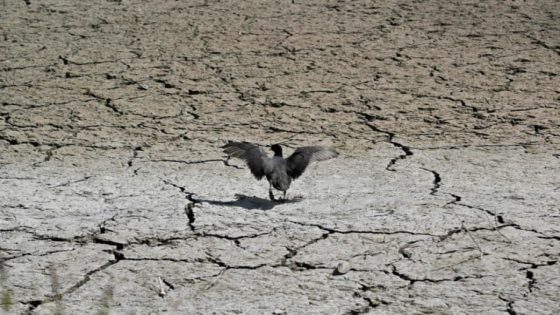Belgium is currently grappling with one of its most severe droughts in over a century, with the ongoing dry spell severely impacting local agriculture. Images of cracked, parched earth, reminiscent of southern Spain, have been captured not far from home—in Oud-Heverlee, Flemish Brabant, where drained ponds at Zoete Waters undergo renovation. This drought is not just a visual shock but a pressing issue affecting farmers and gardeners alike.
- Images show cracked ground in Oud-Heverlee
- Persistent drought severely affects Belgian agriculture
- KMI reports driest two months in 132 years
- Water shortages cause irrigation and fire risks
- Dry conditions expected to continue next week
- Young crops like spinach need urgent watering
According to the Royal Meteorological Institute (KMI), the last two months have been the driest since records began 132 years ago. As of 2025-05-14 21:30:00, the situation remains critical with rainwater reserves depleted and water use restrictions in place. The question is, how long can Belgium sustain these conditions before the consequences become irreversible?
With young crops like spinach, carrots, and beets struggling to get enough water, the drought’s effects ripple through the food supply chain. What does this mean for Belgian farmers and residents in the coming weeks? The latest forecasts suggest only minimal relief, keeping the pressure on local communities and ecosystems.
Why is this drought so concerning for Belgium now? It highlights the vulnerability of local agriculture and water management systems. As farmers watch their crops wither, the risk of wildfires rises, and water restrictions tighten. Key points include:
- Seedlings and young plants require urgent watering to avoid crop failure.
- Rainwater tanks are empty, and some areas enforce water capture bans.
- Fire risks increase in forests and heathlands, with even flower pots and waste posing hazards.
- Weather forecasts predict dry conditions with only light drizzle possible until mid-next week.
Looking ahead, Belgian authorities and citizens must prioritize water conservation and support agricultural resilience. Will this drought prompt lasting changes in how Belgium manages its water resources? Only time will tell, but proactive steps today can mitigate tomorrow’s risks.




























